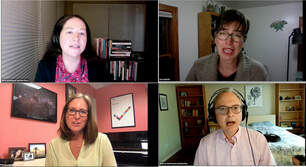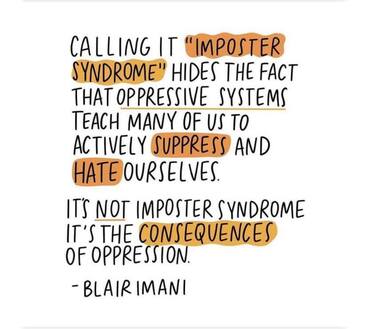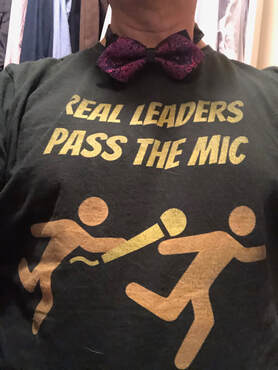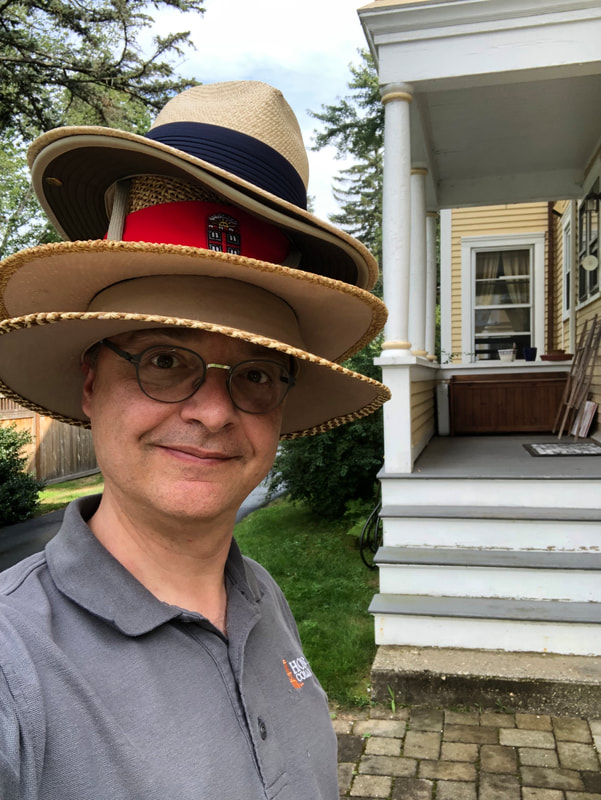|
My collaborators and friends from the Italian organization NeuroPeculiar, joined in the venture by Enrico Valtellina, have posted a call for contributions to the second "Almanacco TUPS" (TUPS = Tipi Umani Particolarmente Strani, "especially/particularly/uniquely odd human types/individuals").
I had the pleasure and honor of contributing to the inaugural Almanac (Nuovi disturbi autistici [New autistic disturbances]) last year, with an essay about translating and neurodivergence. I am intending to [re]translate it [back?] to English for this blog as soon as possible. This new call twists Lorna Wing's notion of a "triad of impairments" and reclaims it for a triad of powerful features of autism from a social perspective. The original call is linked above.. Below are two English versions. The second is my own "re-translation" of their Italian/English call in what I feel is more US-idiomatic, but still very academic-oriented, English. The first is a version that attempts to move closer to Plain Language, which I crafted with Steph Ban's invaluable help. It isn't really PL, as Steph rightly points out, and its non-PL qualities are still my responsibility. Still, I hope the first version is more accessible for non-academics. I know that Enrico and the Neuropeculiar folks want everyone who has something to say about autism -- from the perspective of ethics, epistemology, or activism -- to consider contributing. Please boost either or both versions freely. ----------- The Autism Triad: Ethics, Epistemology, Activism (more plain version) A group called Neuropeculiar is starting a new writing project about autism. They want people from different backgrounds to share their thoughts and ideas. They want to explore three important aspects of autism: ethics, epistemology, and activism. They want each writer to choose one aspect to focus on.
0 Comments
What Constitutes (Music History) Core in the (School of Music and) Conservatory Curriculum3/17/2021 
Last November I had the privilege and honor of participating in a roundtable at the 2020 national meeting of the American Musicological Society called "What Constitutes Core in the Conservatory Curriculum?"
The panel was organized by my colleague Erica Scheinberg, and also included my colleagues Sara Haefeli (who has just published a terrific book on writing in the music curriculum) and Melanie Lowe -- with Erica, among the people in our discipline whom I most admire for their pedagogical inventiveness, effectiveness, and creativity. We were joined by several dozen colleagues in the course of the hour-and-a-half session, who made many insightful points and posed many nuanced questions in the chat -- which was evidently saved, but which I cannot unfortunately convey here. The video of our session was recorded by the AMS, and I am grateful that I can share it with you below with the permission of our Society and of my three colleagues. With the help of those in attendance at our session, we discussed a number of pressing issues connected to music history "core" courses within the curriculum of "conservatory-style" Schools of Music in the USA -- the kinds of institutions where each of us teaches. I encourage those who are interested in the topic to watch the entire video, linked below, since there were many more useful observations; a transcript is available below the video. Captions can be toggled on and off by clicking on the "cc" box in the Panopto video. I'll convey below the video...
As many of you have probably perceived, the way I try to “compose justice” is by creating space for people’s voices (spoken or otherwise) to be heard, especially if those voices have been previously ignored or marginalized.
I know many of those who are connected with me on social media -- and those who may just happen upon this blog -- are also interested in “composing justice.” I would be glad to post on this blog your brief stories of you or someone you admire “composing justice,” for my edification/reflection as well as that of my readers. One or two paragraphs, please, and please feel free to send an image as long as you have permission to have it posted. Just for fun, I will be delighted to give away one of Cal’s “compose justice” T-shirts (or any one of the T-shirts that are currently available through his Bonfire store) to the first five people who send me “composing justice” stories that I decide to share on the blog. (The "compose justice" T-shirt may or may not be available after March 14, so act fast!) You can use the “contact” form on this web site to send me your story; if you do want to include an image I’ll reach out to you to tell you how to send it to me. Please let me know which T-shirt you would like, the color, and the size. Thanks!
Last week, in the midst of the Texas Snowpocalypse, I had the pleasure and privilege of participating in a multi-session online event/conference on neurodiversity called AUTCamp Off, coordinated by my colleagues and friends at Neuropeculiar, an organization run by Autistic activists based in Italy with members throughout southern Europe. I’ve been collaborating with the folks at Neuropeculiar for almost a year, helping with English translation of subtitles for their videos and working on joint projects of various sorts. I was especially honored to have them reach out to me to join panels on parenting and workplace neurodiversity as part of this virtual mini-conference.
I may blog about the workplace session later, since it was definitely very interesting, though I can’t say that my contribution was especially brilliant. But I first want to focus on the first session, called "Genitorialità, autismo, e autismi" (Parenting, autism/autisms), during which I joined Alice Sodi, President of Neuropeculiar and Tiziana Naimo, author of the brilliant neurodiversity information and humor site Bradipi in Antartide (sloths in Antarctica) -- both Autistic mothers of multiple Autistic children; Katjuscia Zof, who like me is the mother of a nonspeaking verbal Autistic daughter, and is a stunning writer and Facebook-blogger about her experiences parenting and otherwise; and critical disability studies scholar / sociologist Alice Scavarda. The YouTube video of the session, above, has English as well as Italian subtitles. What follows ...  In addition to providing occasional perspectives on pedagogy, this blog will often be a reflection on my social media posts, drawing on some combination or synthesis of posts/insights that I have boosted on Facebook or Twitter. I'll start with this image, posted a few days ago by Syreeta Neal on a Facebook group to which we both belong: Image description: text stating “Calling it *imposter syndrome*” hides the fact that _oppressive systems_ teach many of us to actively *suppress* and *hate* ourselves. It’s _not_ imposter syndrome, it’s the *consequences* of oppression. - Blair Imani” - text between asterisks is highlighted in dark yellow. As I mentioned on Facebook, I think it's especially relevant for folks who are from non-dominant identities in a particular area of academia or professional work (and that might mean different identities in different contexts). And... |
Reflections on equity and justice in pedagogy, music, disabilityCategories
All
Archives |
![[Image description: cover of the first Almanacco TUPS with portraits of the various authors by Tiziana Naimo]](/uploads/6/7/6/5/67651803/copertina-almanacco-tups-15-9-2022-scaled-e1665835666213_orig.jpeg)



 RSS Feed
RSS Feed